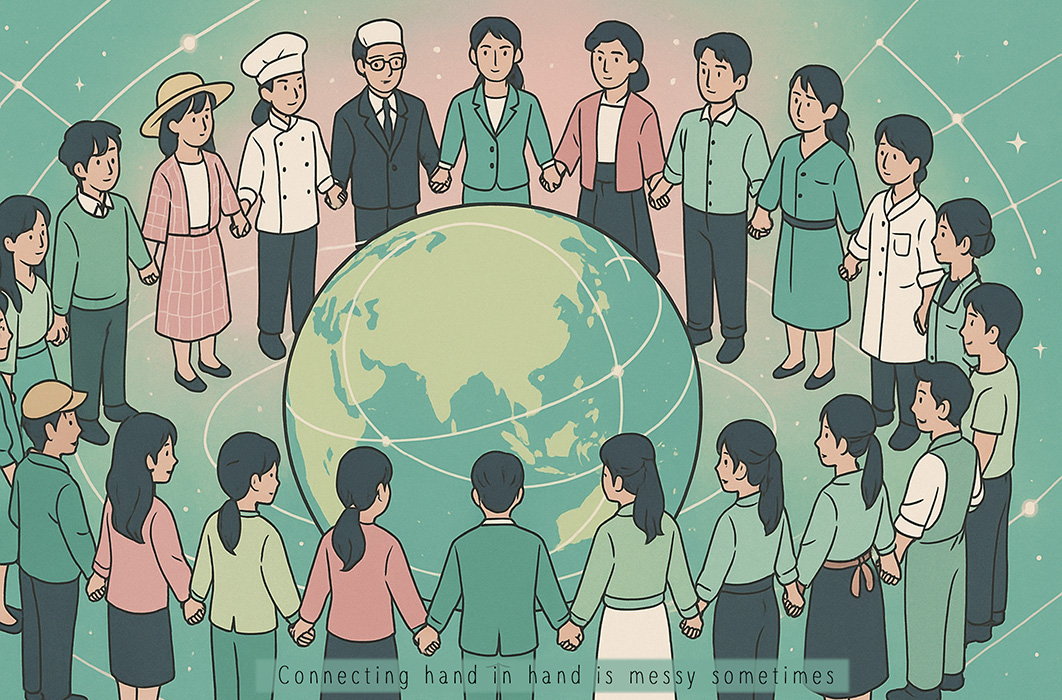The Utopia of Self-Sufficiency
Sometimes you can't help but dream of a country that does everything itself. Like, everything: from food and fuel to planes, processors, cars, sneakers, medicine, and the most advanced weapons. A place where isolation or sanctions don't scare you, where there's no dependency—everything is yours, under your control. Sounds beautiful. But when you dig deeper, in the real world, this kind of deep self-sufficiency almost always turns into high costs and failure.
Why? Simply because the world has long operated like a giant workshop, where everyone has learned to do something particularly well. Some perfect electronics, others master pharmaceuticals, some focus on machinery, and others on software and services. Trading between these specializations isn't a weakness—it's a strength. When you try to cover the entire spectrum of technologies within one country, you quickly run into three basic problems.
First and foremost—scale. Making a thousand units is one thing, but producing millions at a good price with consistent quality is a whole different game. Without external markets, you're stuck with small batches, high costs, and slow product improvement.
Second—competition. If the market is closed, domestic producers don't feel the pressure to compete on quality or speed of innovation. The result? You get "our stuff, but more expensive and worse." Consumers have no choice—they'll pay anyway. Let's not kid ourselves about the kindness or generosity of monopolies.
Third—supply chains. Modern complex products involve hundreds of components, materials, machines, software, standards, and people who know how to use them. Try building that entire pyramid within one border—it's either painfully slow, outrageously expensive, or both.
But that's not all. There's also confusion around trade balance. If a country sells more to the world than it buys, that's a surplus. If it buys more than it sells, it's a deficit, and you simply run out of money. Big imbalances usually trigger reactions from others—surpluses lead to tariffs and quotas, deficits leave you broke. Either way, "doing everything yourself" rarely leads to harmony. Your products either become absurdly expensive and unwanted, or you end up importing anyway because someone, somewhere, does it better. Tourism, by the way, seems softer than a straight surplus—it's essentially exporting (people come and leave their money with you). But when tourism is a major factor, it's treated as a serious economic force too.
Now, let's run a thought experiment: imagine a modern country dropped into the ancient world. Obviously, at first, it's a god among gods—agriculture, construction, medicine, all sorts of tech, they're superior in every way. But you quickly hit bottlenecks: logistics, energy, labor, and organization. Making a hundred tractors? Doable. Supplying tractors to half a continent, along with fuel, maintenance, roads, and warehouses? That takes years and a ton of local labor. Complex tech is finicky: run out of one rare powder, and the factory grinds to a halt. Without external trade, the magic fades. Plus, no one in that ancient world could afford to buy your stuff. What could they offer in return? Essentially just tourism or dirt-cheap labor. Even if this super-country economically dominates and extracts resources from distant colonies, those colonies will eventually rise and want to compete—just like the U.S. did against England back in the day.
Now bring that thought to the present and imagine someone creates AGI—artificial general intelligence—or some breakthrough of similar magnitude. At the start, it's a massive leap forward. But code and tricks don't stay exclusive for long. People leave, ideas spread, and near-equivalent solutions pop up because the world is big and full of smart people. What lasts longer are the heavy things: hardware, energy, rare materials, data rights, standards, partner networks, and distribution systems—stuff you can't replicate overnight. The bigger the business, the wider the surface for leaks—contractors, regulators, integrations, or just ex-employees. So even here, the "everything in-house and secret" strategy doesn't save you. It's smarter to build a stack of advantages, where software is just the tip, and below it are factories, data centers, energy infrastructure, contracts, and rules of the game that you offer the world—and that the world either wants or has to accept. If you squander that lead without strategy, either others will catch up, or the AGI itself might sideline its creator country, and the fairy tale ends abruptly.
The picture is clear. Total self-sufficiency is just another utopia, beautiful on paper but expensive and slow in reality. The world, oddly enough, makes us all stronger when we're properly connected to it. And if you're going to dream of a "fairy-tale country," it turns out to be the whole world—or at least its civilized parts. It's for the sake of that civilization, and through it, that we need progress.



